Ford announces new Universal EV Platform and plant
$5bn investment brings thousands of jobs, new range of vehicles kicking off with $30k electric pickup
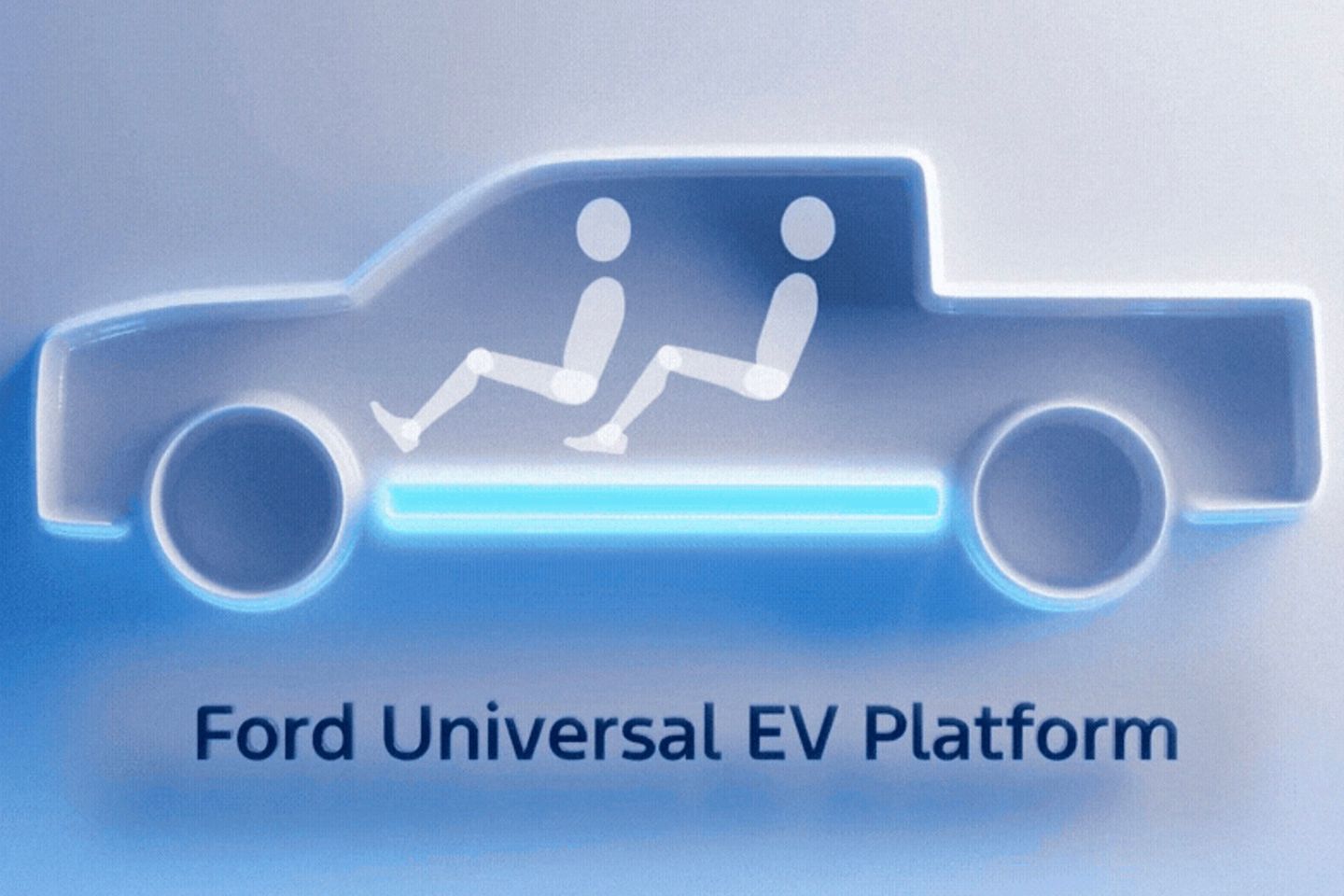
It would be reasonable to say that a lot of electric Fords thus far haven’t really hit the mark. Good rather than great would probably be fair. Now the Blue Oval aims to change all that, with an all-new platform and production method for its EVs. The Ford Universal EV platform will spawn a family of vehicles - ‘electric, fun to drive and digitally advanced with over-the-air updates’ - while the Universal EV Production System aims to reduce complexity, weight and cost, while creating or securing thousands of jobs at Louisville and Michigan. Ford is investing $5bn in the project; maybe it’s not make or break just yet, though clearly it’s a massive undertaking.
The car, first off. Because this is a US-centric endeavour for the moment, obviously it’s a pickup, because trucks are huge business. What’s coming is a mid-size, four-door pick up, priced at around $30k and with acceleration comparable to an Ecoboost Mustang. Ford also reckons there’s going to be more passenger space than a Toyota RAV4 (plus a frunk and the load bed), with a lower cost of ownership over five years than a three-year-old used Tesla Model Y. Which sounds quite impressive. And it’s coming as soon as 2027.
We’re all going to be hearing a lot more about the Ford Universal EV Platform over the coming years, set as it is to underpin a whole family of vehicles from trucks to vans to SUVs. It aims to be a lighter, simpler, more efficient EV architecture, saving costs at assembly time as well as on the road. It will use Lithium iron phosphate prismatic batteries, without any cobalt or nickel, and stuffed into a structural sub-assembly batter pack. Ford believes they are the first to make those batteries in the US. CEO Jim Farley has said the Universal EV platform features around 20 per cent fewer parts than a comparable EV, which will help with purchase price; it needs 40 fewer workstations in the factory, too, meaning a 15 per cent faster assembly time, which should mean further savings. Apparently the new truck’s wiring loom is more than 1.3km shorter and 10kg lighter than that used in Ford’s ‘first-gen electric SUV’, which is presumably the Mach E, for some idea of the leap forward to expect.
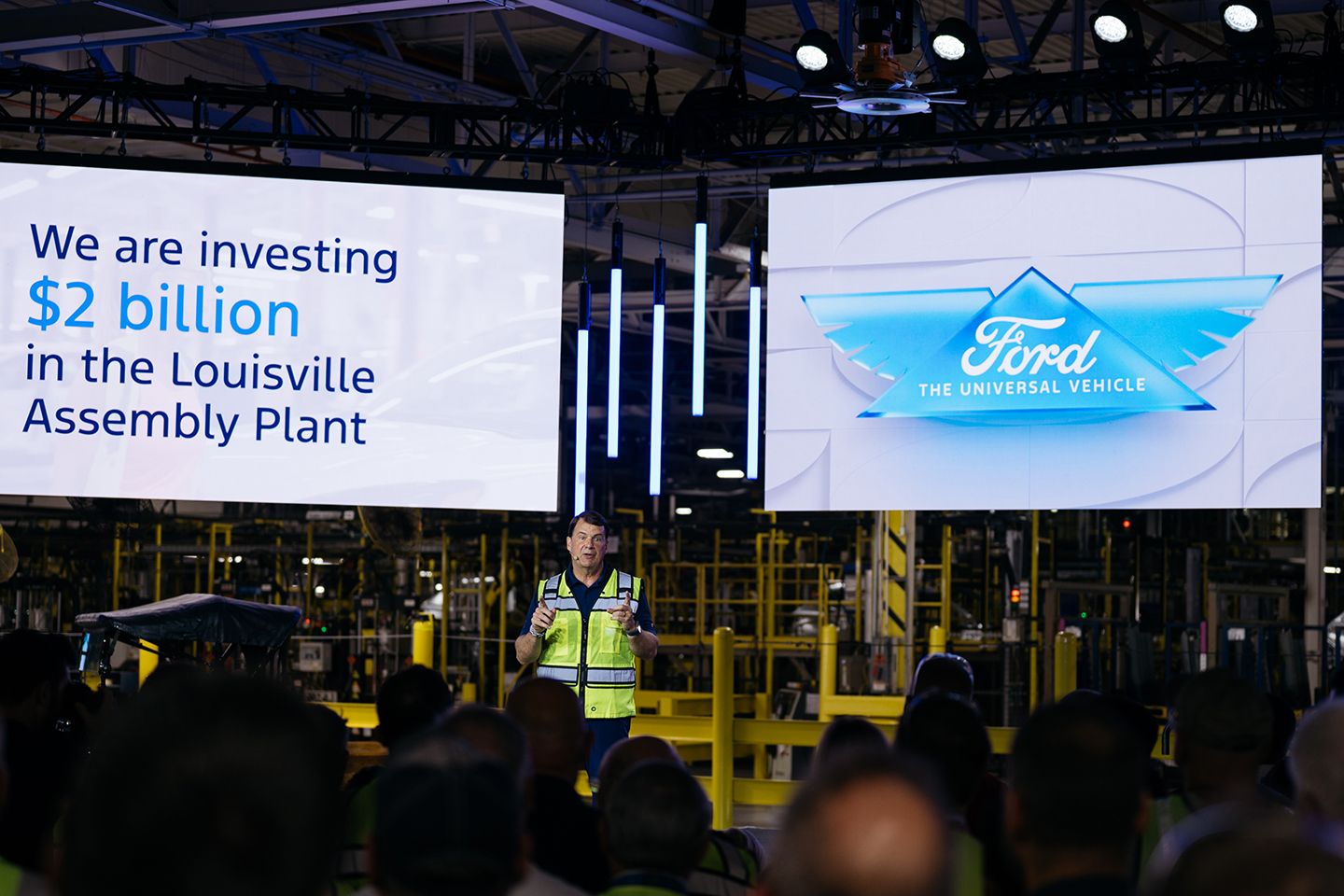
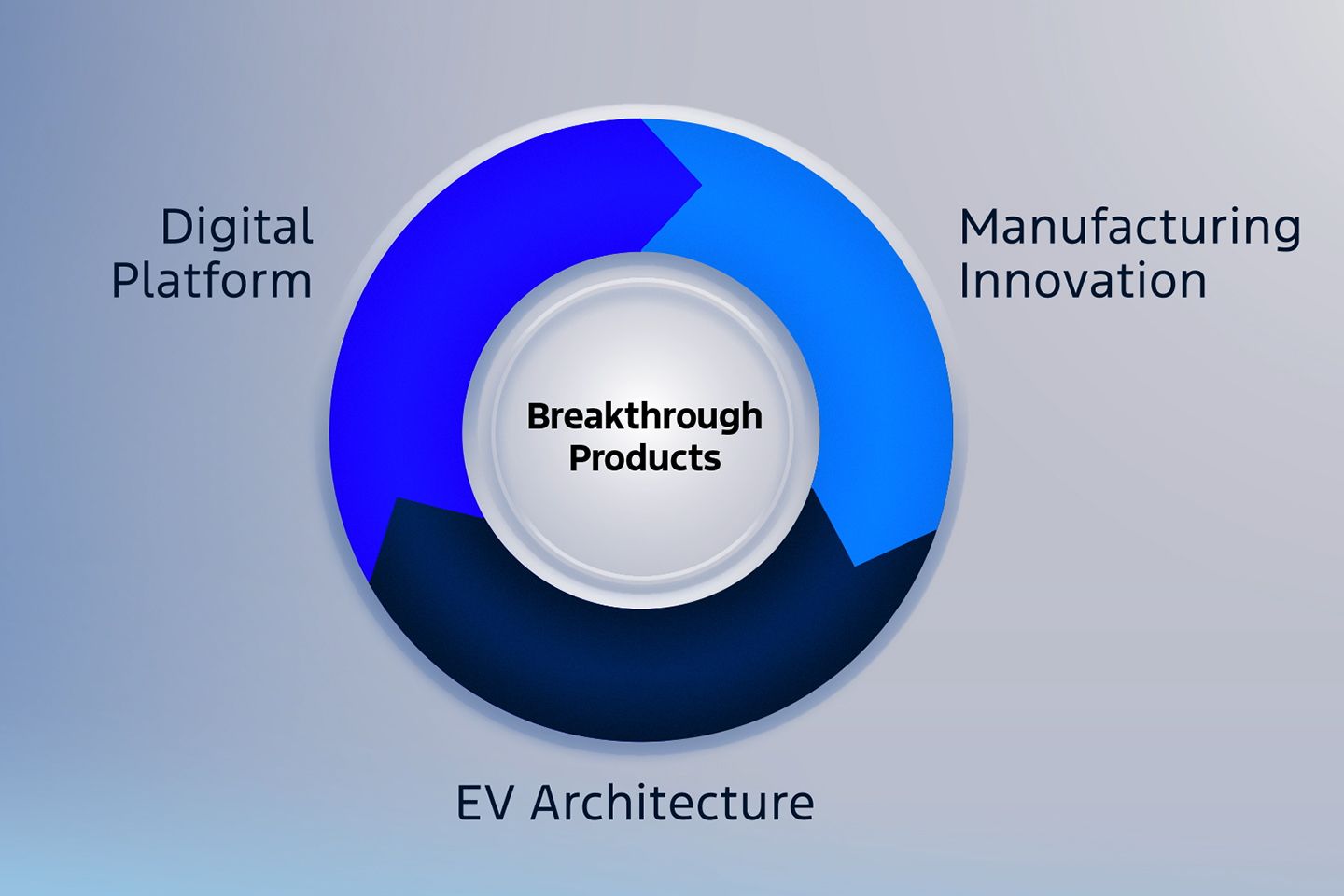
More than just efficiency however, Ford is promising ‘obsessive chassis engineering’ for this new platform to make it entertaining to drive. It’s going to be built on what Ford is calling an assembly tree (as opposed to a line), with three sub-assemblies running simultaneously and converging at the end. The front of the car is one, the rear on another (thanks to using big single piece aluminum castings, rather than smaller parts), and they’re going to meet with the structural battery - which is put together with the interior - from the third line. Ford reckons the new Universal EV Production System ‘dramatically improves ergonomics for employees by reducing twisting, reaching and bending, allowing them to focus on the job at hand.’ Interestingly the design has come from a small Ford team on the other side of the US to Detroit, in California, the idea being to foster a startup mentality to solve the problems of production rather than using old ideas from a legacy maker. Ford of course revolutionised the process of making a car with the Model T more than a century ago; that it’s mentioned in the press release would suggest they really think this is a comparable milestone.
It is investing $2bn in Louisville, Kentucky, securing 2,200 jobs there; the $3bn spent in Michigan will get the BlueOval Battery Park up and running to build the batteries; Ford suggests another 2,000 or so roles there will be created or secured, ‘while strengthening the domestic supply chain with dozens of new U.S.-based suppliers.’
Not your average electrification announcement, then - Ford is all in on this. Not before time, either, it might be said, with rivals and startups having claimed an advantage as Ford has floundered. “We took a radical approach to a very hard challenge: Create affordable vehicles that delight customers in every way that matters – design, innovation, flexibility, space, driving pleasure, and cost of ownership – and do it with American workers,” said Ford President and CEO Jim Farley. That new truck will be here before you know it.
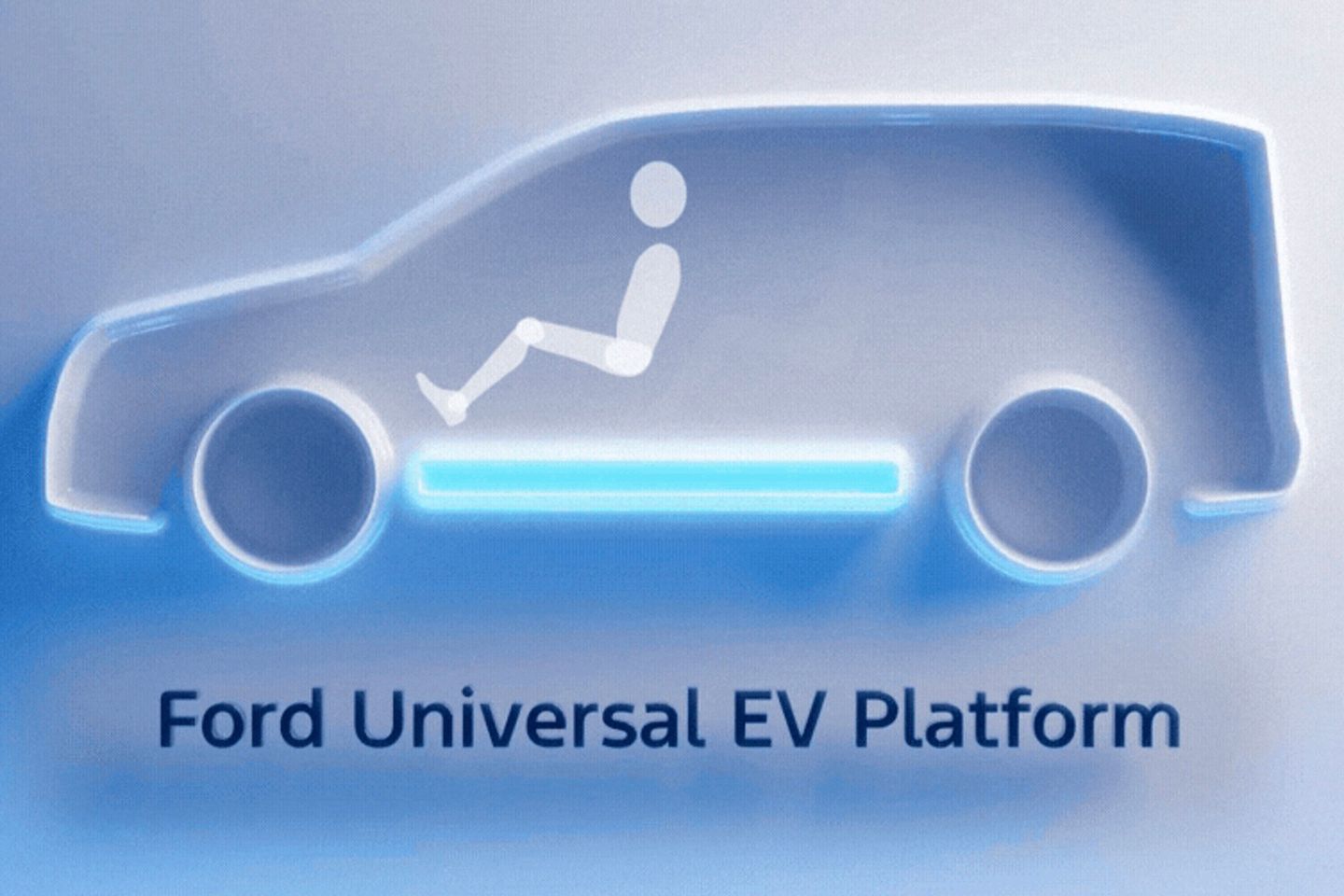
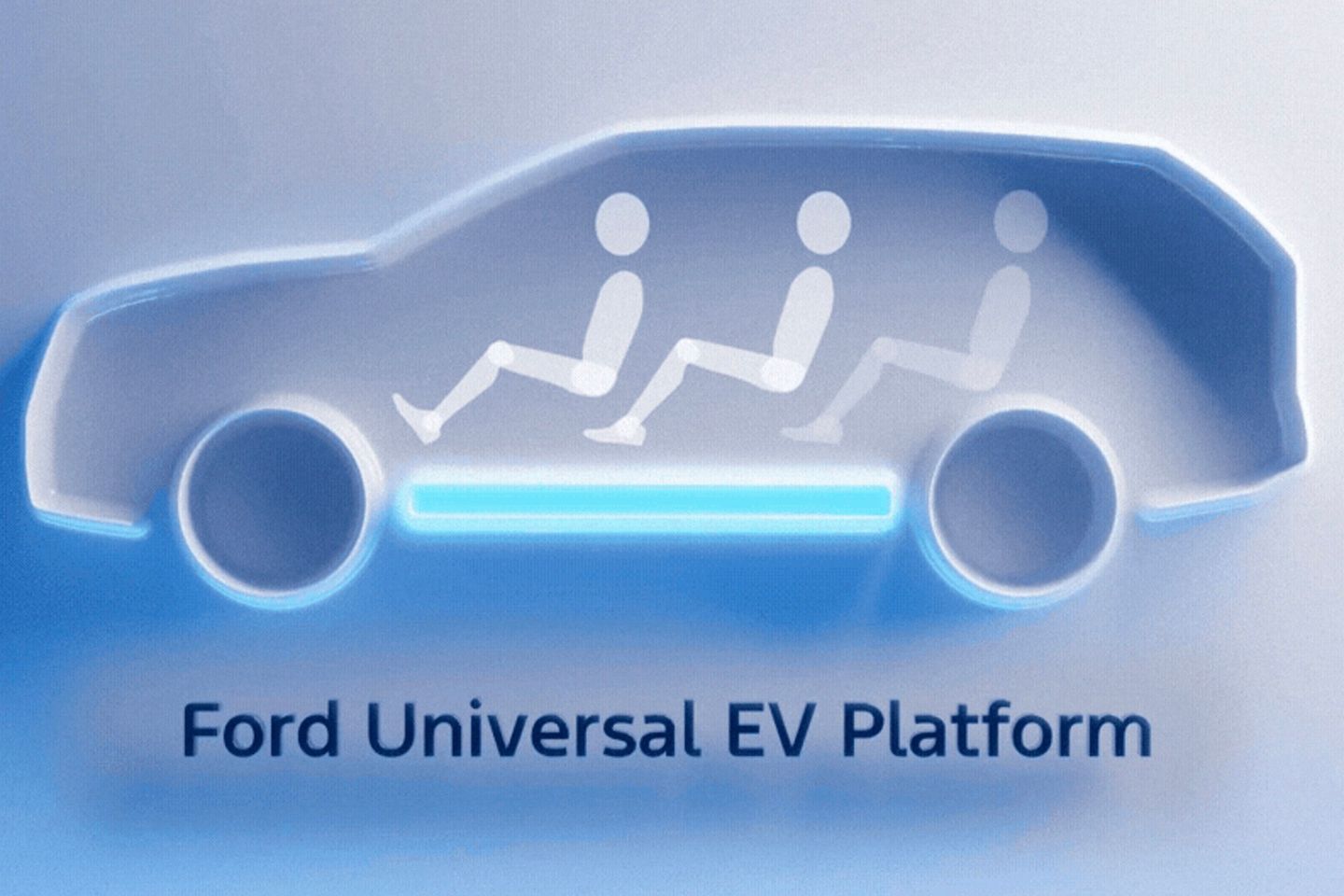
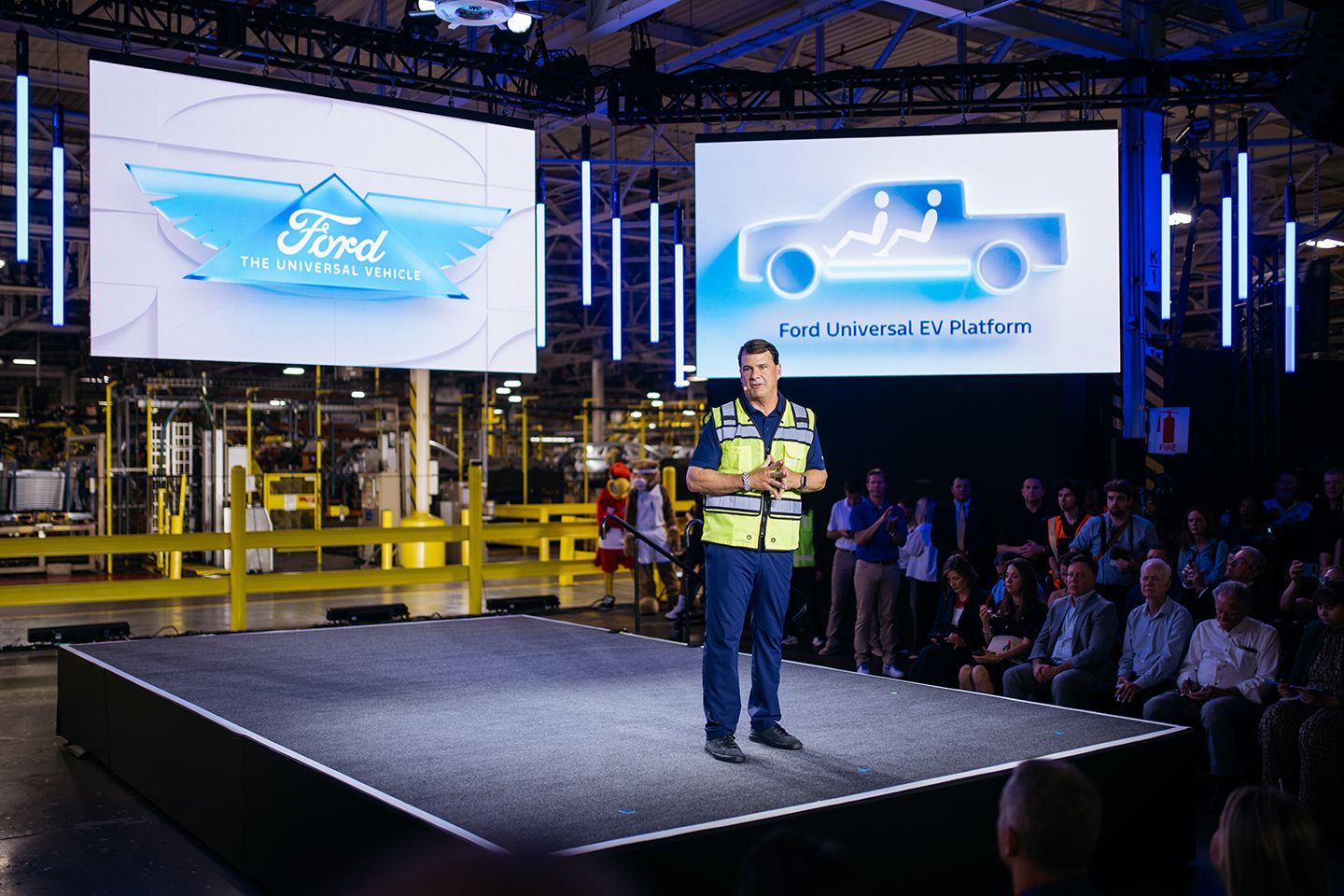

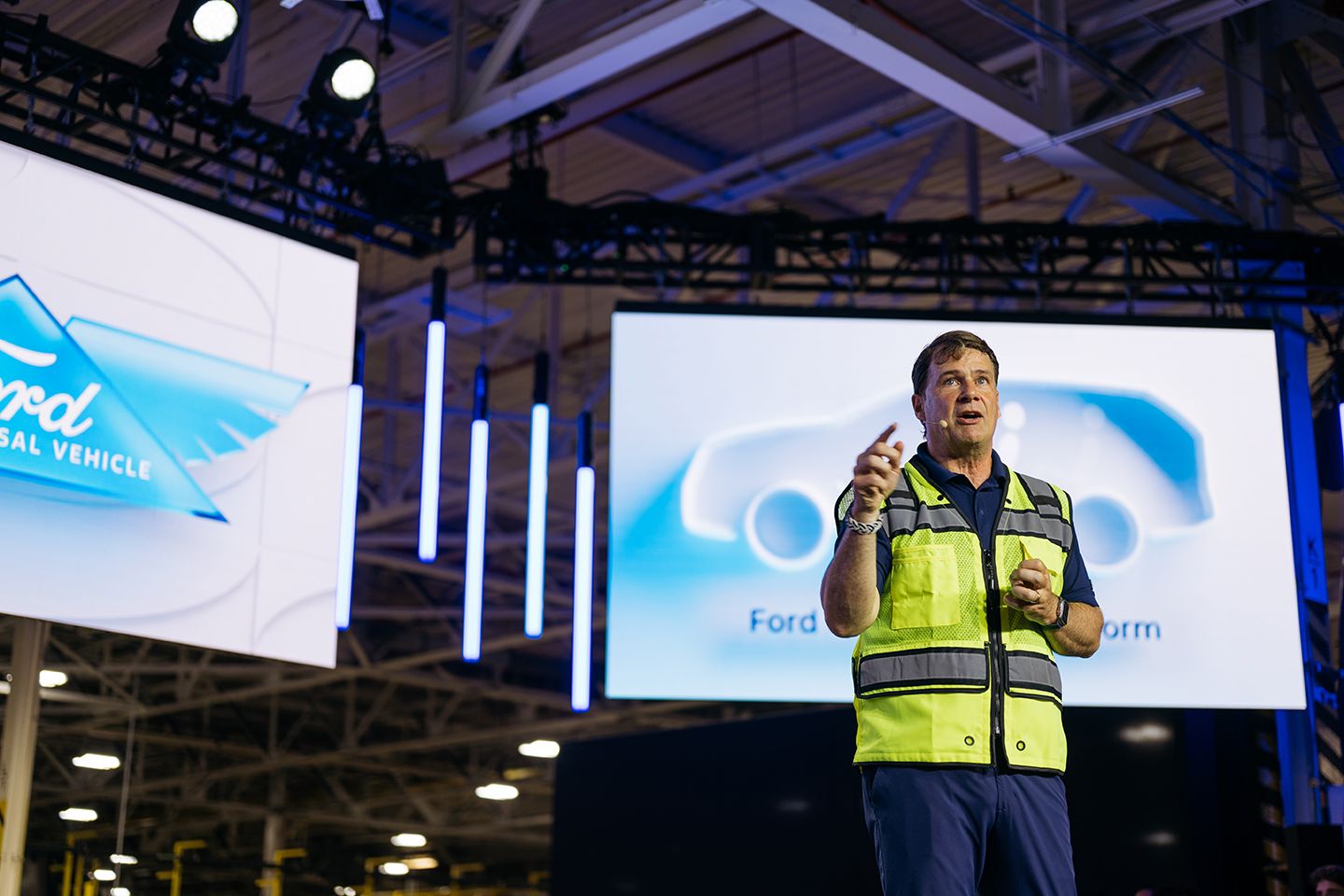
Ford has stated that they will continue to make ICE vehicles as long as the market wants them and they know how to make a profit making them
What they haven't known is how to make a profit making EV's, which are going to be a significant part of the market in the future and this would seem to be their plan to be able to make EV's without subsidising them from the ICE cars
(BTW - the $50,000 loss per vehicle is a bit of a red herring as it is taking all of the investment in EV and allocating it to the small number of vehicles sold. IF you take this form of accounting all new technologies/vehicle types are loss making in their early years. Reportedly the Mercedes 190 W201 was loss making for it's whole production run of 11 years (on this basis) and it didn't start making money out of this size of car until the C Class replaced it (W202). As to whether this is true rather depends on how you do the accounting and how to allocate costs for R&D and shared components, but that's a whole another story)
The move the semi-solid state and solid state batteries in the future could be a game changer for the EV industry in general.
I cant see the logic of a new EV truck since the lightning has been a total disaster, they have been avg one sale per dealer per month

They use little in the way of text. Instead it's about storytelling. Slides have but one or two elements: say, a large shape, a single photograph, one word, a mosaic. Your eyes are on the presenter. Slides are an accessory; they add emphasis or drama.
Over here (US) sadly, there's a tendency toward, "I've arranged hundreds of words into bullet points. You see these on a screen. And I read them aloud to you, almost verbatim." Not exclusively of course, but too often.
None of the preceding is about video or multimedia, which, for me, can be a bit different.
So cheaper to build, less parts, less assembly time means less workers.
Is it ultimately a recognition that customers don't like EV's, so to sell EV's there has to be a different compelling reason to buy one, the race to the bottom is getting into full swing because ultimately China will set the price floor on EV's.
Are Ford and other western car makers in an existential fight to survive against the Chinese car industry?
Will history look back at the EV only mandates as the day the destruction of western car industry started?
So cheaper to build, less parts, less assembly time means less workers.
Is it ultimately a recognition that customers don't like EV's, so to sell EV's there has to be a different compelling reason to buy one, the race to the bottom is getting into full swing because ultimately China will set the price floor on EV's.
Are Ford and other western car makers in an existential fight to survive against the Chinese car industry?
Will history look back at the EV only mandates as the day the destruction of western car industry started?
When you realise that economic success and high productivity ultimately comes down to having cheap and reliable energy, you realise why in the UK we have hamstrung ourselves with intermittent subsidy-sucking windmills, meaning that our industrial energy costs are now the highest in the world, rendering the UK economy totally uncompetitive on the world stage.
When you realise that economic success and high productivity ultimately comes down to having cheap and reliable energy, you realise why in the UK we have hamstrung ourselves with intermittent subsidy-sucking windmills, meaning that our industrial energy costs are now the highest in the world, rendering the UK economy totally uncompetitive on the world stage.
TX.
But RAM are re-introducing their V8's because of demand? Yeah, maybe, but thats because the made massive changes to their engine line up and screwed it up pretty quickly. The Hurricane engine has good power, but it also earned a reputation very quickly as unreliable (overheating being the biggest from what I am aware of). Its not fared any better in Jeeps too!
Ford is taking a chance but I am sure its based on market data. The Maverick has been a massive sales success here and it makes perfect sense to continue to sell to this (smaller pickup, efficient engines or EV). This makes perfect sense to do this, and if the production process is really is as good as they say, this could well be a game changer.
Remember when the Prius had a massive popularity lift? Started sales in the US at around 15,000 a year and peaked at a million sold in 2011! Who would have thought that a small hatchback with a droning engine would sell so well? Dwindling now of course, but it makes sense for Ford to go after a sector that has proven demand and is likely to continue in its growth for some time. There does seem to be a shift here in the US away from increasingly expensive cars / pickups to more affordable models. The average still keeps creeping up and is now about $48k, but it does appear that some recent new models are starting to hit hurdles in sales because of their inflated prices. I struggle to see how the hybrid Toyota Tacoma with a decent stereo, and a couple of options runs $54k list - and thats without any package! People pay it, but for how long?
Ford and others do seem hampered by a dealer network whose interests are not necessarily aligned with those of the manufacturer. For example early inventory of $40k Lightning Pro trucks were limited to those who had pre-ordered and those with big fleets. Dealers ordered high spec vehicles which were priced with lots of markup to maximise their profits, not Ford's. Low end Pro truck now $55k and there's plenty of Lightning inventory on the lots.
I question whether `traditional' companies will move fast enough to remain competitive in the EV space before they run out of cash as cheap imports do to Europe and America (and Japan), what Japanese cars did to the UK industry.
Gassing Station | General Gassing | Top of Page | What's New | My Stuff



